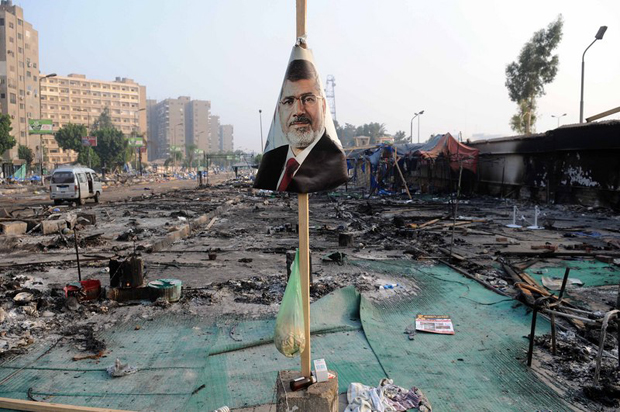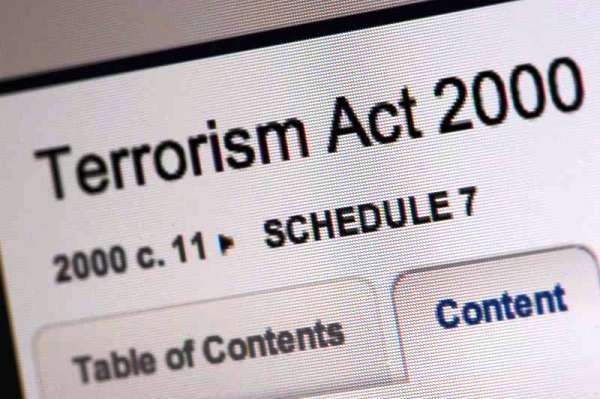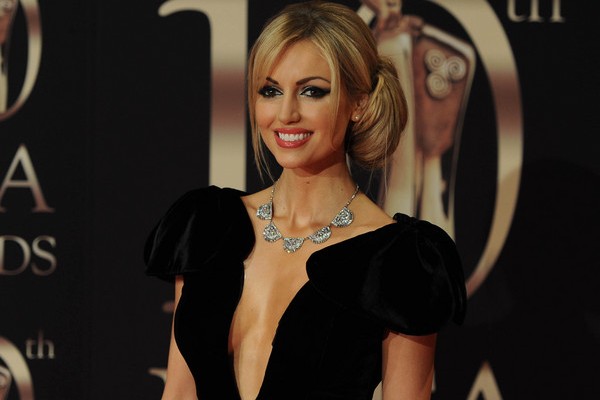Index relies entirely on the support of donors and readers to do its work.
Help us keep amplifying censored voices today.
Британская организация «Индекс цензуры» (Index on Сensorship) обратилась к лидерам стран «Группы двадцати» (G20) с призывом обсудить ситуацию со свободой слова во время их саммита в Санкт-Петербурге 5-6 сентября.
«“Большая двадцатка” должна обращать внимание не только на вопросы экономического развития, но и на ситуацию с правами человека в этих двадцати странах и за их пределами. Учитывая недавно опубликованные материалы о массовой слежке, которую проводят США, Великобритания и некоторые другие страны, как никогда важно, чтобы правительства этих государств четко сформулировали свою приверженность свободе слова, свободе СМИ и права граждан на частную жизнь. “Группа двадцати” должна находиться на переднем крае борьбы за соблюдение этих прав и свобод в своих странах и по всему миру», – заявил директор кампаний и полиси «Индекса цензуры» Марек Марчиньски.
Файлы, преданные огласке Эдвардом Сноуденом, засвидетельствовали масштабы слежки, проводимой Агентством национальной безопасности США и Штабом правительственной связи (GCHQ) Великобритании.
«Пришло время всем лидерам “Группы двадцати” открыто заявить о деятельности, которую они проводят в целях национальной безопасности, и оценить последствия этих действий для их граждан. Любые меры, которые ограничивают свободу слова, право на частную жизнь и другие права человека во имя борьбы с терроризмом, должны приниматься строго в рамках законодательства и в любом демократическом государстве могут быть оправданы только крайней необходимостью», – говорится в заявлении «Индекса цензуры».
В преддверии саммита «Группы двадцати» «Индекс цензуры» также подготовил серию аналитических материалов о ситуации со свободой слова в странах «Большой двадцатки». Материалы серии доступны здесь.

Egypt faced a new phase of uncertainty after the bloodiest day since its Arab Spring began, with nearly 300 people reported killed and thousands injured as police smashed two protest camps of supporters of the deposed Islamist president. (Photo: Nameer Galal / Demotix)
Nearly 1,000 people have been killed in Egypt in a week of deadly violence that began with a brutal security crackdown on Islamist protesters staging two sit ins in Cairo to demand the reinstatement of the country’s first democratically-elected president Mohamed Morsi . Six weeks earlier, Morsi had been removed from office by the military after millions of Egyptians took to the streets calling on him to step down and hold early presidential elections. Ever since the military takeover, hundreds of Muslim Brotherhood supporters have been killed or arrested as the Egyptian military and police pursue what they describe as an “anti- terrorism drive”.
The majority of Egyptians have expressed their support for the military and police , cheering them on in their sweeping campaign “to rid the country of the scourge of terrorism” and at times, launching verbal and physical attacks on the pro-Morsi protesters. Islamist supporters of the deposed president have meanwhile continued to stage rallies across the country, condemning the violence.
Egyptian media has also chosen to side with the country’s powerful security apparatus and has consistently glorified the military while demonizing the toppled president’s supporters. The text “Together against terrorism” appears on the bottom corner of the screen on most state and independent TV channels. In this bitterly polarized and often dangerous environment, it is the journalists covering the unrest that are caught in the middle, facing detention, intimidation, assault and sometimes, even death.
Tamer Abdel Raouf, an Egyptian journalist who worked for the state sponsored Al Ahram newspaper last week became the fifth journalist to die in the unrest when he was shot by soldiers at a military checkpoint “for failing to observe the nighttime curfew.” Abdel Raouf had been driving in Al Beheira when he was ordered by soldiers to turn back. While the soldiers claim he did not heed the warnings , another journalist accompanying him in the car said that Abdel Raouf had in fact been making a U turn when the soldiers fired their guns , instantly killing him. Prior to his death, he had persistently criticized the manner in which “the legitimate” president was ousted.
Other Egyptian journalists critical of the coup have meanwhile, faced intimidation and threats. The handful of Egyptian journalists who have remained unbiased, refusing to take sides in the conflict, have faced the wrath of an increasingly intolerant public that has labelled them “traitors” and “foreign agents.” A reporter working for an international news network who chooses to remain anonymous, told Index she had received threats via her Facebook account urging her to “remain quiet or be silenced forever.” The messages were sent by people claiming affiliations with Egypt’s security apparatus including the Egyptian intelligence , she said. “You will be made to pay for your stance,” read one message while another warned she would be physically attacked for being “a traitor and an enemy of the state.”
However, it is Western journalists that are bearing the brunt of the mounting anger in the deeply divided nation. The government has accused them of “being biased” in favor of the Islamists and of failing to “understand the full picture”.
“Some Western media coverage ignores shedding light on violent and terror acts that are perpetrated by the Muslim Brotherhood in the form of intimidation operations and terrorizing citizens,” a statement released by the State Information Service (SIS), the official foreign press coordination center said. SIS officials have also affirmed that no ‘coverage authorizations’ would be granted to foreign journalists unless they receive prior approval from Egyptian intelligence –a marked shift meant to restrict coverage to “journalists who have not ruffled the feathers of the authorities,” an SIS official who does not wish to be named, disclosed.
Meanwhile, in recent meetings with representatives of foreign media outlets, Foreign Minister Nabil Fahmy and presidential spokesman Ahmed Mosslemany have accused the Western press of conveying a “distorted image” of the events in Egypt. They urged the journalists to rein in their criticism of the government and to try and “see the full picture”. “Why is the Western media not covering the ‘terror’ acts committed by the Muslim Brotherhood including attacks on churches and police stations instead of devoting their coverage to assaults by security forces on pro-Morsi protesters?” they quizzed.
Western journalists deny that their coverage has been one-sided insisting that they had travelled to southern provinces where sectarian violence is rampant. Several foreign reporters have meanwhile, been subjected to harassment, assaults and detentions by security forces and popular vigilante groups while covering the recent clashes between pro-Morsi protesters and security forces.
Last Saturday marked a day of increased violence against Western journalists with at least six foreign correspondents reporting harassment and assaults while attempting to cover the siege on a mosque in downtown Cairo where pro_Morsi protesters had sought refuge after clashes with security forces. Two foreign journalists –the Wall Street Journal’s Matt Bradley and Alastair Beach, a correspondent with the Independent –sustained minor injuries when they were attacked by assailants outside the mosque but army soldier momentarily intervened, shielding them from the angry mob and dragging them to safety. Patrick Kingsley, a correspondent for the Guardian, was meanwhile, briefly detained and questioned by several suspicious vigilante groups and by police as he attempted to cover the mosque siege on Saturday. He later complained on Twitter that his equipment –including a laptop and cell phone– was seized in the process.
Abdulla Al Shami, a correspondent with Al Jazeera who was detained on Wednesday 14 August while covering the security crackdown on the Rab’aa pro-Morsi sit in, remains in police custody at an undisclosed location, according to the New York-based Committee for the Protection of Journalists. Mohamed Badr, a photographer working for the news channel has meanwhile been in detention since July 15 on the charge of possessing weapons—an accusation denied by Al Jazeera. Moreover, the offices of Al Jazeera Arabic were ransacked and shut down by police last week . Egyptian authorities are considering suspending Al Jazeera Mubasher’s license, accusing the network of “a clear pro-Morsi bias ” according to state owned Al Ahram newspaper. Many Egyptians are also accusing Al Jazeera of “inciting violence “ and of “threatening national security.”
The stepped up attacks on foreign journalists come at a time when the new interim government faces a chorus of international condemnation over its handling of the current political crisis. Clearly determined to crush the Muslim Brotherhood , the authorities remain defiant rejecting all attempts at reconciliation with the Islamists as “meddling in the country’s internal affairs.” Anyone remotely suggesting that the military should reconcile with the Muslim Brotherhood, the long detested arch-enemy, is accused of being a “traitor” and a “threat to the nation’s security”. Hence, the legal complaints recently filed against Vice President for Foreign Affairs Mohamed El Baradei who resigned his post earlier this month after security forces forcibly broke up the pro_Morsi sit ins.
In the divided country, Egyptians have adopted an uncompromising attitude of “you are either with us or against us”. The government has meanwhile encouraged such attitude by praising and rewarding “the patriots”. In such an atmosphere, there is no room for objectivity and any neutral media that reports without bias is accused of being pro-Islamist and perceived as “the enemy”.
Reverting back to Mubarak-era tactics, the government is determined to silence the voices of dissent.
 The examination and detention of David Miranda on 18 August at Heathrow Airport has brought Schedule 7 of the Terrorism Act 2000 in to sharp focus. Its purpose is to deter terrorism, an aim that it strives to achieve through facilitating the stop, search and examination (under compulsion) of individuals. I say individuals rather than suspects as there does not need to be any reasonable suspicion that any terrorist offence has been or will be committed. That said the selection of individuals is to be based on “informed considerations” (such as intelligence), should not be used arbritrarily and must only be applied to determine those who may be concerned in acts of terrorism. The power only applies to those believed to be entering or departing the United Kingdom and this belief must be justifiable in the individual circumstances.
The examination and detention of David Miranda on 18 August at Heathrow Airport has brought Schedule 7 of the Terrorism Act 2000 in to sharp focus. Its purpose is to deter terrorism, an aim that it strives to achieve through facilitating the stop, search and examination (under compulsion) of individuals. I say individuals rather than suspects as there does not need to be any reasonable suspicion that any terrorist offence has been or will be committed. That said the selection of individuals is to be based on “informed considerations” (such as intelligence), should not be used arbritrarily and must only be applied to determine those who may be concerned in acts of terrorism. The power only applies to those believed to be entering or departing the United Kingdom and this belief must be justifiable in the individual circumstances.
Be in no doubt that, whatever the expressed safeguards as to informed selection and justifiable beliefs, Schedule 7 is draconian. It was meant to be. It was aimed at preventing terrorism through exceptional legislative means. It exceptionally permits individuals to be stopped, questioned under threat of prosecution if they refuse to answer and their possessions seized (under threat of prosecution) should they fail to comply. It turns the accepted approach to criminal suspects on its head; the need to demonstrate a prior reasonable suspicion of offending is removed and the protection of silence is pierced by a compulsion to answer all questions. It is a blunt but arguably necessary tool in the fight against terror. The danger is that it becomes a blunt tool to batter down doors unconnected with terrorism. It cannot and should not be applied as a means to achieve any other objective.
In order to obtain confidential or sensitive information such as journalistic content the police must ordinarily undergo a route that involves obtaining a production order. To obtain such an order they must essentially satisfy a court that the order is justified and the protection afforded to the material can be overcome. Evidently Schedule 7 was never meant to take aim at journalism but, given the powers of compelled answers and seizure of material, one can instantly appreciate the fast lane route it would provide to obtaining information for extraneous intelligence purposes. That would be an abuse of the Act, a likely breach of Article 10 (freedom of expression) and unlawful on a number of levels but how can we safeguard against it? “Quis custodiet ipsos custodies” [who will guard the Guardians] wrote Juvenal. Rather apt.
Dan Hyde is a partner at HowardKennedyFsi LLP
This article was originally published on 22 Aug, 2013 at indexoncensorship.org
 Ryanair has embarked on a litigation spree after a Channel 4 documentary made allegations about its practices. The airline is to sue the television station Associated Newspapers, Mirror Group newspapers and one of the pilots interviewed for the programme, who has already been fired by the Irish firm for contributing to the programme. There were reportedly plans to sue the Belfast Telegraph as well, but then graciously accepted an apology from that paper.
Ryanair has embarked on a litigation spree after a Channel 4 documentary made allegations about its practices. The airline is to sue the television station Associated Newspapers, Mirror Group newspapers and one of the pilots interviewed for the programme, who has already been fired by the Irish firm for contributing to the programme. There were reportedly plans to sue the Belfast Telegraph as well, but then graciously accepted an apology from that paper.
The main point in contention is the claim that Ryanair planes carry very low amounts of fuel. In a statement following the Belfast Telegraph’s apology, Ryanair’s Head of Communications Robin Kiely said:
We welcome the Belfast Telegraph’s apology and its acceptance that Ryanair’s pilots are free to carry as much fuel as they wish, that Ryanair fully complies with EU fuel regulation, and the IAA’s confirmation that Ryanair’s safety is “on a par with the safest airlines in Europe”.
Ryanair has sought the services of Belfast solicitor Paul Tweed in the upcoming cases. Probably a wise move – Tweed claims to have “never lost a case”.
And Ryanair, of all people, could back up this claim. In 2011, Tweed represented Rosanna Davison [pictured], a former Miss World and daughter of single-browed singer Chris de Burgh in a defamation case against the airline.
Davison had criticised Ryanair’s already controversial “charity” pin-up cheesecake calendars, featuring female air stewards in various states of undress, for not featuring any Irish models. The airline responded a little strongly, saying Davison’s comments “bordered on racism and demonstrated an elitist attitude against Ryanair’s international cabin crew.” The model engaged lawyer to the stars Tweed, sued for defamation and won E80,000 in compensation and damages. In engaging Tweed this time round, Ryanair have clearly learned their lesson.
Mr Tweed has the distinction of practising in Dublin, Belfast and London, a fact he regularly points out while bemoaning moves for libel reform in England and Wales. Perhaps, if Stormont fails to pass the law reform fought so hard for on this side of the Irish Sea, the budget airlines’ planes will be packed with celebrities, oligarchs and quacks looking to take advantage of Mr Tweed’s services in Belfast’s and Dublin’s more claimant-friendly courts.